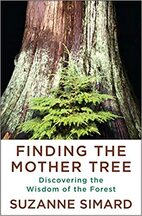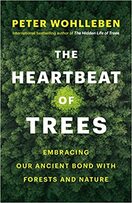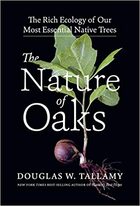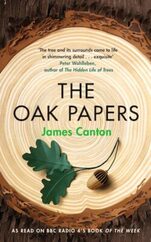|
Ecological Literacy by David Orr
"Literacy is the ability to read. Numeracy is the ability to count. Ecological literacy, according to Garrett Hardin, is the ability to ask ‘What then?’ The failure to develop ecological literacy is a sin of omission and of commission. Not only are we failing to teach the basics about the earth and how it works, but we are in fact teaching a large amount of stuff that is simply wrong. By failing to include ecological perspectives in any number of subjects, students are taught that ecology is unimportant for history, politics, economics, society, and so forth." Read David Orr's full essay HERE. ------------------------------------------------ Essays from Down Under These two essays are the winners of the 2019 Nature Writing Prize in Australia, presented by the Nature Conservancy with the support of the McLean Foundation. Jenny Sinclair’s An Orchard For My Father and Sue Castrique’s On the Margins of the Good Swamp were those essays. ------------------------------------------------ John Muir and the Modern Passion for Nature, by Donald Worster Walking, by Henry David Thoreau Nature, by Ralph Waldo Emerson Alexander von Humbolt's Narratives Sea of Cortez, by John Steinbeck The Unsettling of America, by Wendell Berry Thinking Like a Mountain,by Aldo Leopold Field Notes on Science and Nature, by Michael Canfield John Muir's 1897 Case for Saving America's Forests
Seeing the Natural History Way The Aesthetic Roots of Natural History Why Natural History Matters  Finding the Mother Tree: Discovering the Wisdom of the Forest Suzanne Simard is a pioneer on the frontier of plant communication and intelligence; she's been compared to Rachel Carson, hailed as a scientist who conveys complex, technical ideas in a way that is dazzling and profound. Her work has influenced filmmakers (the Tree of Souls of James Cameron's Avatar) and her TED talks have been viewed by more than 10 million people worldwide. Now, in her first book, Simard brings us into her world, the intimate world of the trees, in which she brilliantly illuminates the fascinating and vital truths--that trees are not simply the source of timber or pulp, but are a complicated, interdependent circle of life; that forests are social, cooperative creatures connected through underground networks by which trees communicate their vitality and vulnerabilities with communal lives not that different from our own.  The Heartbeat of Trees: Embracing Our Ancient Bond with Forests and Nature In The Heartbeat of Trees, renowned forester Peter Wohlleben draws on new scientific discoveries to show how humans are deeply connected to the natural world. In an era of climate change, many of us fear we’ve lost our connection to nature—but Peter Wohlleben is convinced that age-old ties linking humans to the forest remain alive and intact. We just have to know where to look.  The Nature of Oaks: The Rich Ecology of Our Most Essential Native Trees Douglas Tallamy. Oaks sustain a complex and fascinating web of wildlife. The Nature of Oaks reveals what is going on in oak trees month by month, highlighting the seasonal cycles of life, death, and renewal. From woodpeckers who collect and store hundreds of acorns for sustenance to the beauty of jewel caterpillars, Tallamy illuminates and celebrates the wonders that occur right in our own backyards. He also shares practical advice about how to plant and care for an oak, along with information about the best oak species for your area. The Nature of Oaks will inspire you to treasure these trees and to act to nurture and protect them.  Also read the December 2020 review of The Oak Papers by Dr. James Canton at the Well Read Naturalist |
Reading CornerPlease send your book ideas to the Reading Corner. 
Categories
All
Archives
February 2023
|
 RSS Feed
RSS Feed